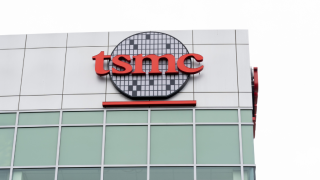The days of being restricted to a 160-character text message are long gone, SMS itself is now seen as “traditional” and, following the recent deluge of OTT messaging services such as iMessage, Snapchat and WhatsApp, the growth of Rich Communication Services (RCS) may prove to be the latest tipping point.
Google’s initiative with the GSMA to create a common universal profile has restored industry confidence in RCS, and will be valuable in helping Communication Service Providers (CSPs) move to IP-based messaging that will interwork across mobile networks. CSPs looking to enable advanced RCS services aren’t obliged to use Google’s Jibe cloud platform, however, and have two primary options available to them.
First, while it would require lengthy planning time and significant investment, they have the option of building their own ecosystem. Alternatively, they could off-load their RCS services to a third-party provider, although this option would remove their control over their customer data, meaning they would essentially relinquish the ability to guide the evolution of their RCS services.
A road less travelled
There is a third way however.
A cloud-based RCS interconnect hub would serve as an efficient means of deploying secure, advanced RCS communications. This would allow providers to capitalise on monetisation options, without the complexity or cost associated with large scale network infrastructure projects.
A platform such as this would provide CSPs with the freedom they need to select architecture, fallback scenarios, chatbot frameworks, or any number of other options on their own terms. Time to market for RCS services would be significantly reduced, and CSPs would remain in control of their messaging ecosystem, along with the customer data they own, handle and manage.
Providing an evolutionary path for existing legacy services to IP-based services, this interconnect hub would offer both convergence and backward compatibility. In doing so, it would represent a service that has, at its core, messaging systems with a global installed base of SMS, MMS, voicemail and RCS, and carrying billions of messages every day across the world.
What’s more, not only will an RCS platform and interconnect hub allow for faster deployment options but, by providing Messaging as a Platform (MaaP), will also make it possible to embrace additional opportunities to monetise application to person (A2P) services.
Empowering the operator
Ultimately, operators will be empowered with evolutionary control of advanced communications and the flexibility to innovate services either from their own network or from the cloud, as required. The result will be a dynamic ecosystem of partners working in tandem to build intelligent, flexible RCS solutions, and successfully capitalising on the resulting opportunities.
This new approach to RCS presents operators with a lower barrier to entry, allowing them to connect to other service providers and, ultimately, to billions of subscribers, without having to build out their own networks. Working together with their partners, such as API, framework, and monetisation vendors, CSPs can create rich communications experiences for their subscribers, and efficiently explore service opportunities provided by other ecosystems.
Whether for chatbots, connected homes, media connectors, or multi-identity, multi-line, and multi-devices services, RCS is a win-win for CSPs and their partners, giving them the opportunity to remain in control, while providing their customers with a better experience, without the burdens of complexity or cost.
And by allowing CSPs to remain in control of the RCS ecosystem, both commercially and technically, the future of RCS services will be safeguarded, as development is no longer offloaded to third-parties who may have different agendas.




